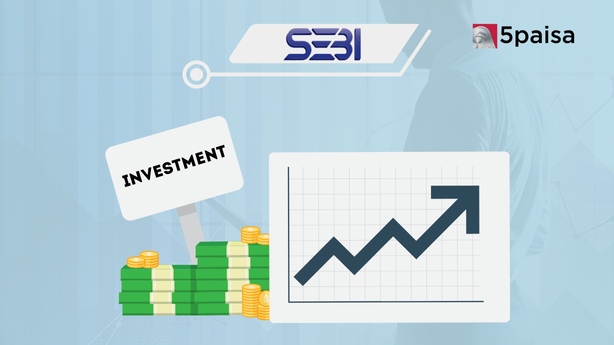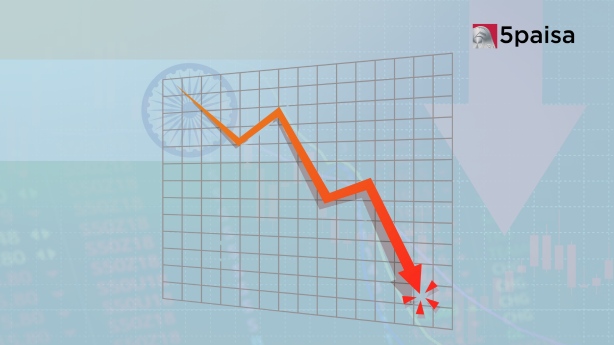Cable and Wire Stocks Decline for Second Session Amid Aditya Birla Group's Market Entry
How Nifty indices will treat demergers under the new rule

We often find that when a company is demerged, there is an adjustment that have to be made to the indices, especially if the said stock is an index stock. There have been several cases of such demergers from large companies likely to impact the indices. One such example we have recently seen is the demerger of the steel business of NMDC, which was then listed as a separate company, NMDC Steel and the shareholders of NMDC were issued shares in the new entity in the ratio of 1:1.
The new rules could have a big impact on the upcoming demerger of Jio Financial from Reliance Industries since the stock of Reliance Industries is not just present in the indices but is an index heavyweight. Also, it exists in the NSE and BSE indices as well as most of the global indices, including the MSCI. But we will come back to that later. First, let us look at what is this shift in the treatment of mergers all about and how it is likely to impact in the new scenario.
How are demergers adjusted in the existing methodology?
Before we go to the new proposals on the treatment of demergers in the indices, let us first understand how the demergers are treated in indices at present. In any scheme of arrangement of demerger, if the demerged company is a constituent of any of the indices, then the following adjustments are made to the indices a per the current practice followed for such demergers. There are 3 scenarios for treatment of demergers.
-
If the index in question has a fixed number of constituents (like the Nifty 50), then the demerged company is excluded from the index and the same is replaced with another eligible stock immediately after the equity shareholder approval is accorded to the scheme of arrangement for demerger of the company.
-
In the case of indices with variable number of constituents, the demerged company is excluded from the index soon after the equity shareholders’ approval to the scheme of arrangement for demerger. However, the index committee does not make any immediate replacement in the index, unlike the first case.
-
Finally, if a company under demerger is an index constituent and also in an index on which Futures and Options are allowed to be traded on the NSE, then in such cases, the changes are announced to the market participants 4 weeks prior to the date of the index reconstitution.
It may be recollected that in this regard, the NSE Indices had floated a market consultation paper on treatment of mergers and demerger in Nifty equity indices in October 2022. These changes proposed in the subsequent paragraphs are based on the feedback received from the market participants. The changes to the methodology of demergers are also in line with the global best practices.
New methodology for index treatment of demergers
The revised methodology is based on assumptions of two different situation with a different index treatment in both the cases.
Situation 1: If Special Pre-Open session (SPOS) is conducted by Exchange
In such cases, the demerged company will be retained in the index. In addition, spun off business / entity will also be included in the index at constant price. This constant price is nothing but the difference between the demerged company’s closing price on T-1 day (T is Ex- Demerger date) and the price that is derived during Special Pre-Open session (SPOS) on the Ex- Demerger date. In this case, the spun off (hived off) business / entity which is the newly listed entity would be removed from the index after EOD on 3rd day of its listing.
There is a special situation wherein the spun-off entity hits circuit filters too often. So, during the first 2 out of these 3 days, if the spun off business hits the price band on both days, then the exclusion date will be deferred by another 3 days. It is only after observing 2 consecutive days of the spun off business not hitting the price band, that such spun off business would be removed from the index after the third trading day of such observation. However, if the spun-off stock again hits the hits the price band, then the exclusion of such stock shall not be deferred any further. It may be recollected that the National Stock Exchange (NSE) conducts special pre-open session (SPOS) for the purpose of price discovery of all stocks in cases that entail corporate restructuring.
Situation 2: If Special Pre-Open session (SPOS) is not conducted by the Exchange
This is the second kind of situation. Now, if the Special Pre-Open session (SPOS) is not conducted by Exchange, then the Demerged company will be removed from the index at the beginning of T-1 day. Here T-day refers to the Ex-date for demerger of stock. On the subject of replacement, it would depend on whether it is a fixed index or a variable index. In the case of indices with fixed number of companies, suitable replacement will be made. However, no replacement (inclusion) will be made in case of indices with variable number of companies.
How this move will favourably impact Jio Financial hive off?
One of the big advantages of this move is that the demerging company can continue to remain in the indices. This is very important in case of large companies like Reliance due to their weight, their F&O open interest and also the billions of dollars of passive money that is pegged to such stocks. The above change will certainly help in reducing churn in index constituents resulting from corporate action involving demergers. This change will be applicable to the scheme of arrangement of all companies involving demerger which are officially approved by equity shareholders of these respective companies on or after April 30, 2023.That is good news as it implies that in the case of the Jio demerger, the deal can happen without disrupting the presence of Reliance Industry in the key indices.
- Flat ₹20 Brokerage
- Next-gen Trading
- Advance Charting
- Actionable Ideas
Trending on 5paisa
02
 5paisa Research Team
5paisa Research Team
03
 5paisa Research Team
5paisa Research Team
04
 5paisa Research Team
5paisa Research Team
Indian Market Related Articles
Disclaimer: Investment in securities market are subject to market risks, read all the related documents carefully before investing. For detailed disclaimer please Click here.




